Keynote Speakers
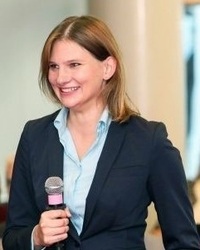
Professor Iwona Chlebicka
Dr. Iwona Chlebicka is a full professor of mathematics at the University of Warsaw since February 2025. She specializes in nonlinear partial differential equations and functional analysis in generalized function spaces, particularly Orlicz and Musielak-Orlicz spaces. Her research centers on elliptic and parabolic problems with low-regularity data, with emphasis on the existence, uniqueness, and regularity of solutions, as well as sensitivity of variational functionals with respect to the choice of competitors. Prof. Chlebicka has made significant contributions to the theory of approximation in nonstandard function spaces, establishing results that are crucial in the analysis of variational problems and nonlinear PDEs. Her work builds an effective analytical framework for modeling complicated physical phenomena, from non-Newtonian fluids to time-evolving media. She has received several national honors, including the Polityka Prize and a Ministry of Science scholarship for outstanding young scientists. Prof. Chlebicka is leading her third National Science Centre grant concerning nonlinear partial differential equations and related calculus of variations.
University of Warsaw, Poland
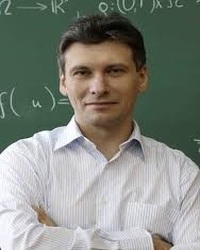
Professor Piotr Gwiazda
Dr. Piotr Gwiazda is a distinguished Polish mathematician specializing in the analysis of partial differential equations and applied mathematics. He holds positions at both the Institute of Mathematics of the Polish Academy of Sciences and the University of Warsaw. His research focuses on nonlinear PDEs, fluid dynamics, and measure-valued solutions, contributing significantly to the mathematical understanding of complex systems. Prof. Gwiazda has collaborated with leading mathematicians and has been involved in various international research projects. He has published extensively in top-tier journals and serves on scientific committees, including the Scientific Council of the Institute of Mathematics of the Polish Academy of Sciences. In 2025, he was awarded the prestigious MAESTRO grant by the National Science Centre for his project on integrating PDE techniques with statistical and machine learning methods . Prof. Gwiazda has published extensively in leading mathematical journals and is actively involved in international research collaborations and academic initiatives.
Polish Academy of Sciences, Poland
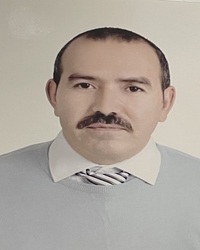
Professor Khalid Hattaf
Dr. Khalid Hattaf is a professor at the Regional Center for Education and Training Professions (CRMEF) in Casablanca, Morocco. He earned his Ph.D. in Mathematics and Computer Science from Hassan II University of Casablanca in 2011. His research interests span a wide range of topics including mathematical modeling in virology, epidemiology, ecology, and economics, as well as dynamical systems, control theory, and numerical analysis. He is also actively involved in mathematics education, with a focus on probability teaching, ICT in education, and the use of modeling and simulation in the teaching of mathematics. Prof. Hattaf has been consistently recognized as one of the Top 10 Researchers in Morocco (2024) and listed among the top 2% of the world’s most cited scientists across multiple disciplines by Stanford University (2020, 2021, 2023, and 2024).
The Regional Center for Education and Training Professions (CRMEF, Casablanca), Morocco
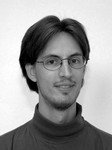
Professor Peter Alexander Hästö
Dr. Peter Alexander Hästö is a full professor of mathematics at the University of Helsinki, specializing in nonlinear analysis and partial differential equations (PDEs) with nonstandard growth conditions. His research focuses on function spaces with variable exponents and generalized Orlicz spaces, which are essential for analyzing PDEs in various scientific contexts. A major area of his work involves the p(x)-Laplacian, a nonlinear operator modeling phenomena with spatially varying properties. He has made significant contributions to the regularity theory of solutions, including Hölder continuity and Harnack inequalities. Professor Hästö has also studied the boundedness of maximal operators and developed interpolation and embedding theorems, providing a comprehensive framework for understanding complex PDEs with nonstandard growth.
University of Helsinki, Finland
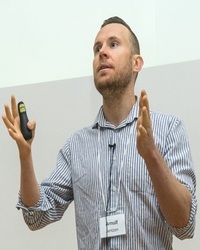
Professor Arnulf Jentzen
Dr. Arnulf Jentzen is a Full Professor of Applied Mathematics at the University of Münster (Germany) since 2019 and a Presidential Chair Professor at the Chinese University of Hong Kong, Shenzhen (CUHK-Shenzhen, China) since 2021. He studied mathematics with a minor in computer science at Goethe University Frankfurt, where he earned his Diploma in 2007 and his Ph.D. in mathematics in 2009. His research focuses on machine learning approximation algorithms, computational stochastics, numerical analysis for high-dimensional partial differential equations (PDEs), stochastic analysis, and computational finance. He has a particular interest in deep learning-based methods for solving high-dimensional approximation problems and differential equations. Prof. Jentzen received the prestigious Felix Klein Prize from the European Mathematical Society (EMS) in 2020. He serves in the editorial boards of numerous leading journals, including SIAM Journal on Numerical Analysis, SIAM Journal on Scientific Computing, Journal of Complexity, Communications in Mathematical Sciences, and Journal of Mathematical Analysis and Applications, among others.
The Chinese University of Hong Kong, Shenzhen (CUHK-Shenzhen) & University of Münster, Germany
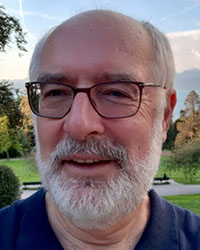
Professor Yuri Luchko
Dr. Yury Luchko is a Full Professor in the Department of Mathematics–Physics–Chemistry at the Berlin University of Applied Sciences and Technology (HTW Berlin). He is a leading expert in applied mathematics, with internationally recognized contributions to the field of fractional calculus and fractional differential equations. Prof. Luchko’s research focuses on both theoretical and applied aspects of fractional differential operators, fractional partial differential equations, and their applications in physics, engineering, and mathematical modeling. His work addresses the development of analytical methods, existence and uniqueness theorems, as well as numerical techniques and fundamental solutions for fractional models. Prof. Luchko’s contributions have significantly advanced the understanding and practical use of fractional models in various domains, including anomalous diffusion, viscoelasticity, and signal processing.
Berlin University of Applied Sciences and Technology, Germany
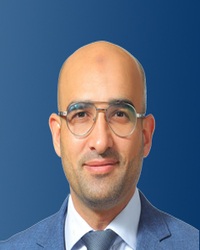
Professor Mohammed Sababheh
Dr. Mohammed Sababheh is a professor of Mathematics working mainly in the field of Mathematical Analysis, in Abdullah Al Salem University in Kuwait. He attended McGill University during 2003-2006 for his Ph.D. After that, he joined the University of Jordan as an assistant professor from September 2006 to January 2008, when he moved to Princess Sumaya University for Technology. Sababheh has received several acknowledgments for his teaching quality; where he was awarded teaching awards from McGill University, Princess Sumaya University for Technology and the University of Sharjah. In his research, Sababheh authored several research papers in Harmonic analysis, Functional analysis and Operator theory; with emphasis on Operator and Functional inequalities. His research has been acknowledged to rank him in the top 2% best researchers in the world, according to the 2020, 2022 and 2023 reports that were conducted by researchers from Stanford University and Elsevier. In addition to his active teaching and research roles, Professor Sababheh has held several academic and administrative leadership positions and serves on the editorial boards of various international journals in mathematics.
Abdullah Al Salem University, Kuwait & Princess Sumaya University for Technology, Jordan
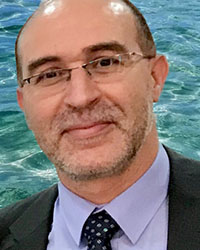
Professor Mohammed Seaid
Dr. Mohammed Seaid is an Associate Professor in the School of Engineering and Computing Sciences, Durham University. His doctoral research focused on the design and analysis of numerical methods for simulating the radiative heat transfer equations in gas turbine combustion chambers. His post-doctoral research was conducted in the area of numerical modelling of coupled radiation and hydrodynamics using simplified PN approximations, M1 entropy models and nonlinear multilevel methods. Along with Prof. Axel Klar (in the Fraunhofer Institut Techno- und Wirtschaftsmathematik at Kaiserslautern, Germany), he has been developping efficient models for radiation and conduction in high temperature gas flows. The general research results have wide applicability within engineering. Since 2001, much of his research work has been undertaken within the SFB 568 Research Group, a strongly collaborative group of mechanical engineers and distributed computing researchers at the universities of Darmstadt, Heidelberg, and Kaiserslautern.
Durham University, United Kingdom & University Mohammed VI Polytechnic, Morocco